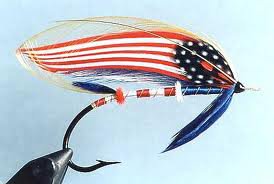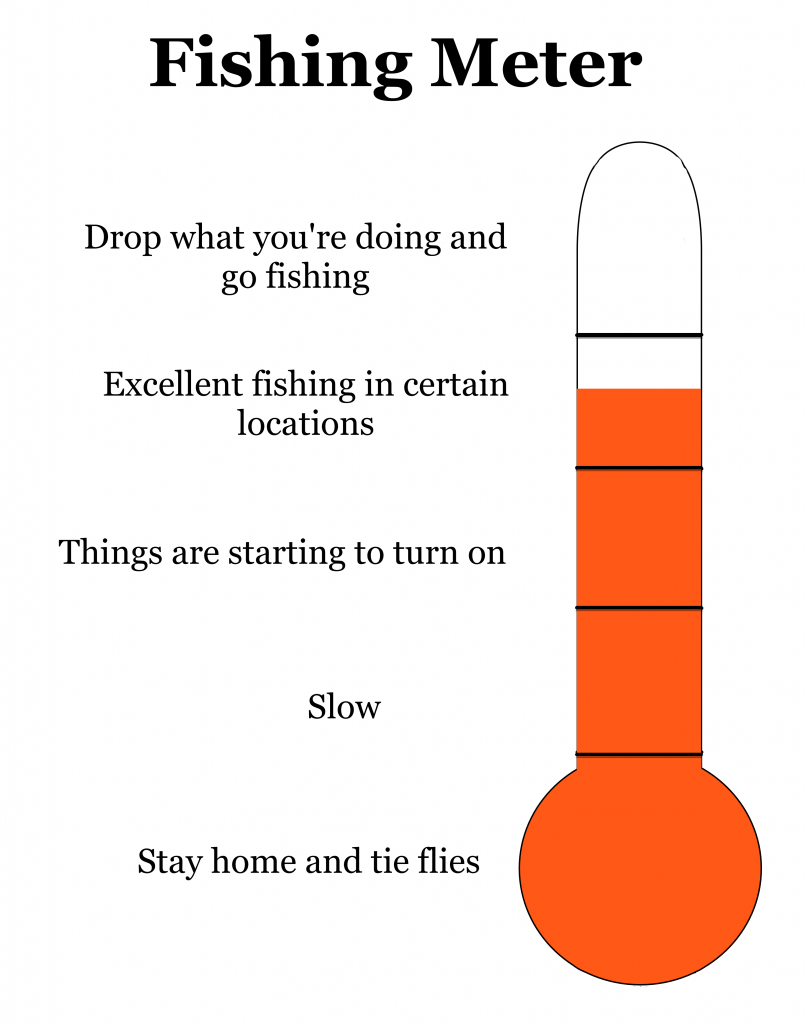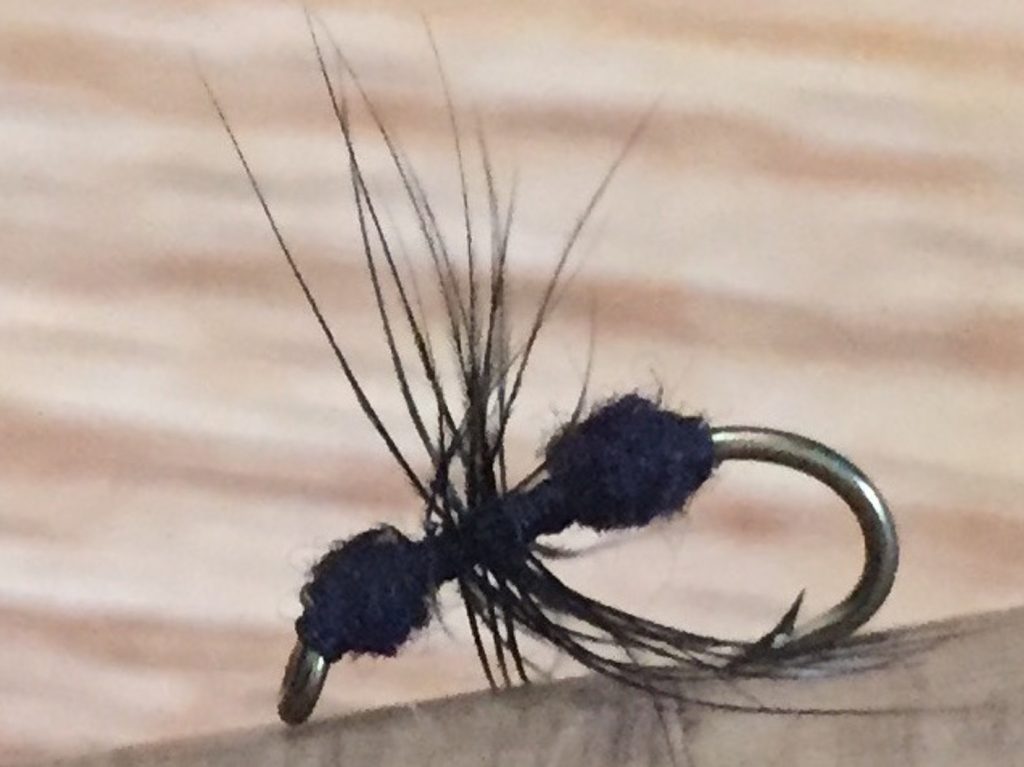
Location
Smoky Mountains

Water Levels
Little River: 196cfs / 1.97 feet
Pigeon: 257cfs / 1.77 feet
Oconaluftee: 299cfs / 1.52 feet
Cataloochee: 53.1cfs / 2.34
Water Temperatures (approximate)
Low elevations: 63 – 67 degrees
Mid elevations: 61 – 65 degrees
High elevations: 59 – 63 degrees
Current Conditions
Last week’s rain plus the cold front that followed has streams in pretty good shape for July… especially on the TN side. The NC side of the park is a little warmer with lower water levels.
Projected Conditions
Going to get hot again this week with a brief break mid week. Rain possibilities again later in the week. Should be an okay week, especially if we can get that rain!
Tips
If you’re wanting to hit some of the bigger, low elevation streams, get out there early or late in the day. Early will give you the best water temps. Late will give you the best hatches. Mid day will give you lethargic fish! Mid to high elevation streams may slow down a bit in late afternoon but should fish pretty well all day.
Hatches/Fly Suggestions
We’re still in “yellow season,” when most everything hatching is yellow in color. Look for bigger numbers of sulphurs (#16), Light Cahills (#14-12) and Yellow Sallies (#16). They’ll be most active in the evenings. Keep your eyes open and you may even see a few large golden stones hatching here and there.
During the heat of summer when hatches are sparse, attention turns to terrestrials. Fish are feeding a lot on ants and beetles. Inchworms are abundant as well and a Green Weenie can be a killer this time of year. It’s a great fly to drop off a dry fly. Check out my article Hidden Terrestrials for a different approach to your terrestrial fishing,
As always, a good selection of attractors will get you through most situations. Parachute Adams, Parachute Hares Ears, Thunderheads, Adams Wulffs and Royal Wulffs always do pretty well. But as mentioned above, you’ll want to be sure to have some dry flies in yellow. A Neversink in #16 – 14 is a staple for me. So is a Yellow Stimulator. I’d also have a selection of Parachute Sulphurs and Cahills.
For nymphs, try Hares Ears, Pheasant Tails, Copper Johns and Tellico Nymphs. And with so much stuff hatching, now is a pretty good time to start experimenting with soft hackles. Check out my Hatch Guide for complete hatch information.
Featured Fly
A soft hackle ant is a great fly to drop of the back of your favorite dry fly in pocket water. Ants are not strong swimmers and presenting an ant pattern just below the surface can be deadly!


